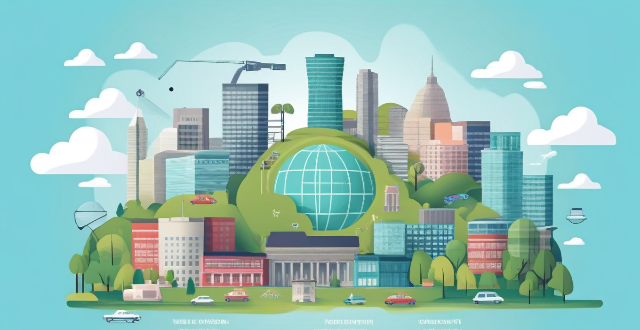The tourism industry, a significant contributor to the global economy, has been profoundly affected by climate change. The sector is now compelled to adapt to the associated risks and opportunities in various ways, including developing disaster management plans, building more resilient infrastructure, promoting sustainable tourism practices, diversifying offerings to attract tourists throughout the year, adopting green initiatives, developing nature-based tourism activities, creating wellness retreats, and providing educational programs about the connection between climate change and health. By implementing innovative solutions and embracing sustainability, the sector aims to mitigate the negative impacts of climate change and ensure its long-term viability.

How the Tourism Industry is Adapting to Climate Change-Related Risks and Opportunities
The tourism industry, a significant contributor to the global economy, has been profoundly affected by climate change. The sector is now compelled to adapt to the associated risks and opportunities in various ways. Here's a detailed look:
Risks
*Extreme Weather Events*
Tourism heavily relies on favorable weather conditions. However, with climate change, extreme weather events such as hurricanes, floods, and droughts have become more frequent, posing a significant threat to the industry.
Adaptations:
- Disaster Management Plans: Many tourism businesses are developing or improving their disaster management plans to deal with extreme weather events. This includes setting up early warning systems and emergency response procedures.
- Infrastructure Upgrades: There's an increased focus on building more resilient infrastructure capable of withstanding severe weather conditions.
- Insurance: Some businesses are investing in insurance that covers losses due to climate-related disasters.
*Rising Sea Levels*
Rising sea levels pose a threat to coastal areas, which are popular tourist destinations.
Adaptations:
- Relocation: Some communities and resorts are considering moving to higher grounds to avoid being submerged.
- Coastal Protection Works: Efforts are being made to build protective barriers against rising sea levels.
- Sustainable Tourism: Promoting sustainable tourism practices to minimize the industry's contribution to climate change.
*Changing Seasons*
Climate change is causing shifts in traditional tourist seasons, affecting businesses that rely on seasonal tourism.
Adaptations:
- Diversification: Businesses are diversifying their offerings to attract tourists throughout the year.
- Marketing Adjustments: Adjusting marketing strategies to promote off-peak season tourism.
Opportunities
*Ecotourism*
There's a growing demand for ecotourism, where travelers seek out environmentally responsible travel experiences.
Adaptations:
- Green Initiatives: Hotels and resorts are adopting green initiatives like renewable energy sources and water conservation measures.
- Nature-Based Tourism: Developing nature-based tourism activities that educate travelers about climate change and conservation efforts.
- Partnerships: Collaborating with environmental organizations to offer sustainable travel packages.
*Winter Sports*
Climate change is extending winter sports seasons in some regions, presenting new opportunities.
Adaptations:
- Extended Seasons: Ski resorts are experiencing longer seasons, allowing them to operate for more extended periods.
- Artificial Snow: Investing in technology to produce artificial snow when natural snowfall is insufficient.
- Alternative Destinations: As traditional skiing destinations become less reliable due to warming temperatures, there's an opportunity for new destinations to emerge.
*Health and Wellness Tourism*
With increasing awareness of health issues related to climate change, there's a growing interest in health and wellness tourism.
Adaptations:
- Wellness Retreats: Creating retreats focused on promoting health and well-being through activities like yoga, meditation, and healthy eating.
- Climate-Friendly Activities: Offering activities that have a minimal impact on the environment, such as hiking and cycling.
- Educational Programs: Providing educational programs about the connection between climate change and health.
In conclusion, the tourism industry is adapting to climate change by addressing the associated risks while seizing new opportunities. By implementing innovative solutions and embracing sustainability, the sector aims to mitigate the negative impacts of climate change and ensure its long-term viability.